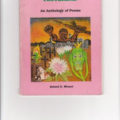“Death, Be Not Proud” is a sonnet written by John Donne in the 17th century. In the poem, Donne challenges the traditional concept of death as a powerful and fearsome entity, instead arguing that death is nothing more than a mere “sleep” from which the soul awakens to eternal life.
The poem is written in a conversational and argumentative tone, with Donne addressing Death directly and using rhetorical questions to emphasize his points. He begins by questioning Death’s power, asking “Death, be not proud, though some have called thee / Mighty and dreadful, for thou art not so.” He goes on to argue that death is simply a natural part of the cycle of life, and that the soul is immortal and cannot be killed.
Donne uses religious imagery and allusions throughout the poem to strengthen his argument. For example, he compares death to a “slave” to the devil and a “poison” to the soul. He also references the Bible, mentioning the “shame” of the “grave” and the “second death” in Revelation.
The poem concludes with a powerful image of the soul’s triumph over death, with Donne writing “One short sleep past, we wake eternally / And death shall be no more; Death, thou shalt die.” This final line is a clear statement of Donne’s belief in the resurrection of the soul and the ultimate defeat of death.
Overall, “Death, Be Not Proud” is a powerful and thought-provoking poem that challenges traditional notions of death and offers a message of hope and reassurance to the reader. Donne’s use of religious imagery and allusions, along with his conversational tone and rhetorical questions, make the poem both intellectually stimulating and emotionally moving.





Latest Comments